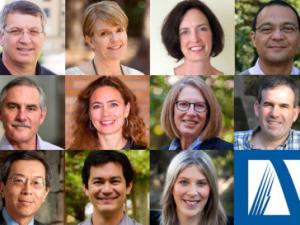

Research Bio
My research adopts a process-oriented approach to the understanding of social behavior, with a particular focus on stigma, intergroup relations, and stereotyping. A unifying theme in my work is an interest in the ways that stable characteristics of individuals (e.g., their goals, expectations, and ways of seeing the world) are influenced by social context, conceptualized both at the level of culture and at the level of specific psychological situations. As such, my work reflects a social-cognitive, Person-by-Situation (P x S) approach to illuminating basic psychological processes that influence how stigmatized, low status groups and non-stigmatized, high status groups interact with each other. Much of my work has direct implications for the academic achievement of minority groups; recent and ongoing research focuses on psychological and physical health outcomes as well. In my primary line of work, I study how a history of marginalization affects the educational and mental health outcomes of stigmatized groups in the United States. In addition to documenting these processes, I have been equally committed to understanding interpersonal factors (e.g., cross-race friendships) as well as intrapersonal factors (e.g., ethnic identity) that can moderate these outcomes. In related work, I have examined the conditions under which positive stereotypes boost the test performance of high status groups and thus perpetuate educational inequalities. A final aspect of my research focuses on stereotypes from the perspective of the perceiver (i.e., the individual holding the stereotypes). The goal driving this work is to understand the intuitive theories that perceivers have about the ways in which the behavior of stereotyped targets varies across situations.
Research Expertise and Interest
diversity, intergroup relations, education, prejudice, stigma
In the News
New Fellows of the American Association for the Advancement of Science
Berkeley, Stanford, UCLA, Caltech boost number of minorities
The California Alliance, led by UC Berkeley, is setting a new course for diversifying the postdoctoral and faculty ranks at top-tier research universities nationwide.
Upper class more likely to be scofflaws due to greed, study finds
The upper class has a higher propensity for cheating, driving illegally and endorsing unethical behavior in the workplace , believing that “greed is good,” according to a new UC Berkeley study.



